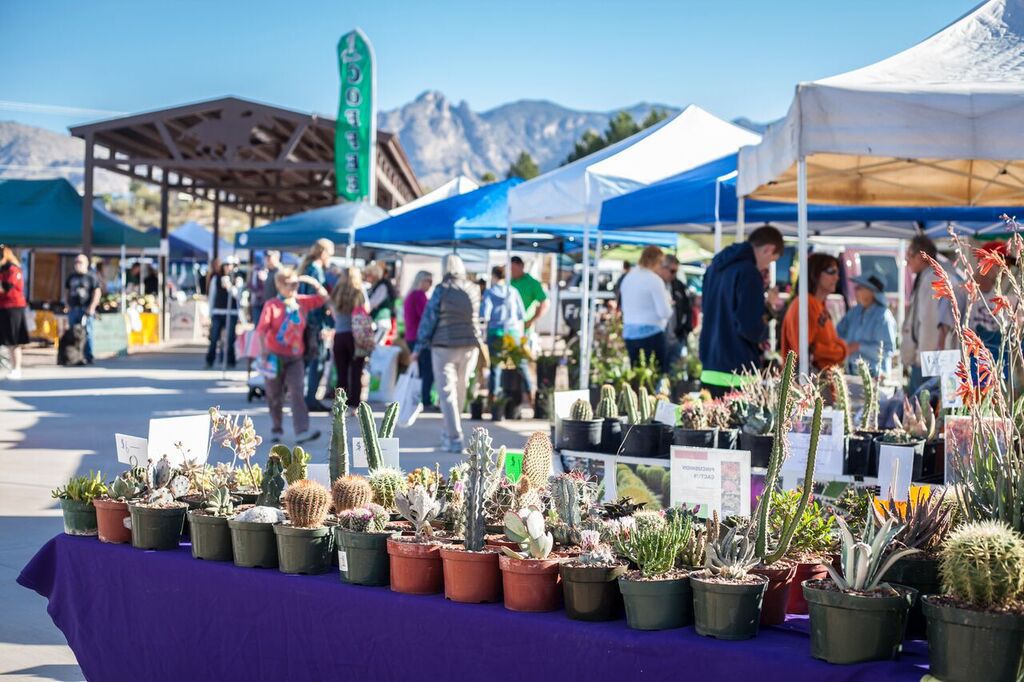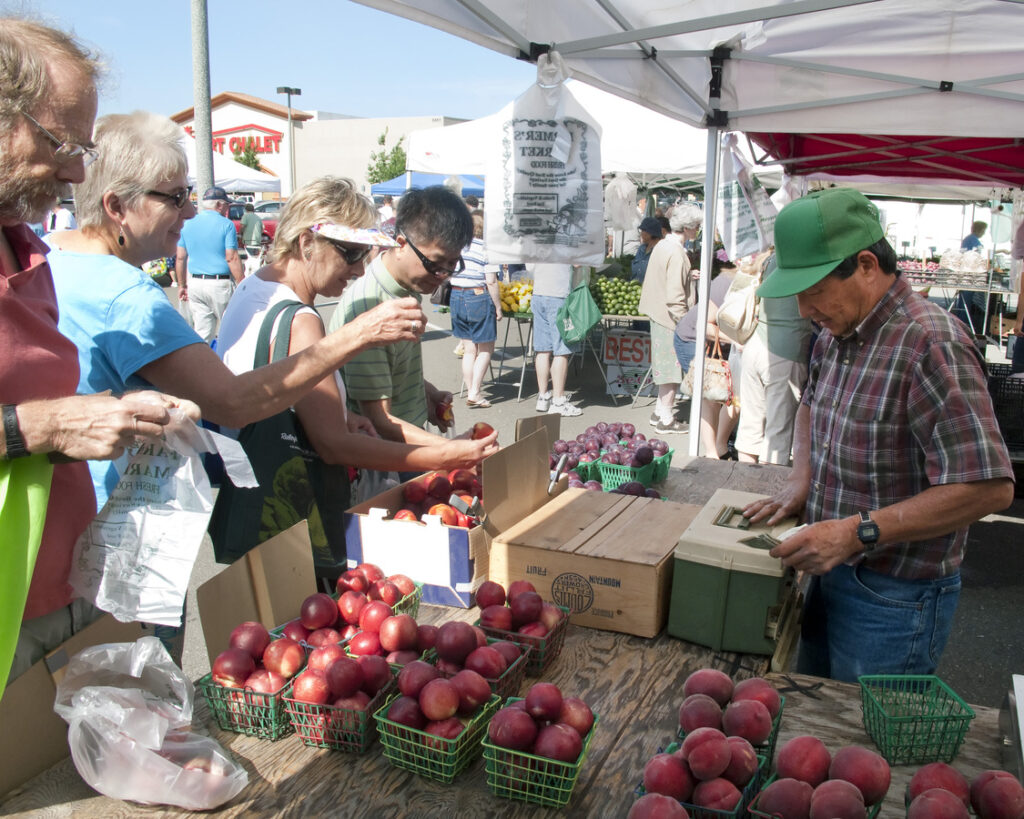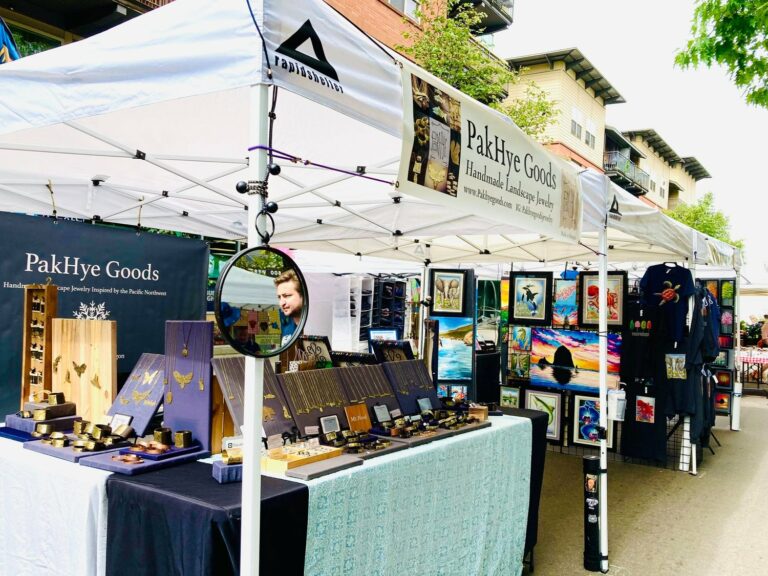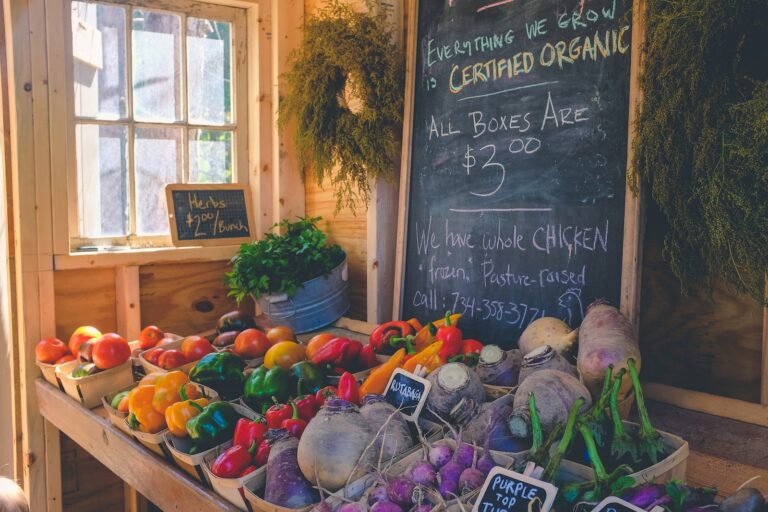Farmers markets are a great way to make some extra cash, but they’re not easy. The process of getting approved to sell at a farmers market in Arizona is relatively straightforward and can be done in just a few steps. You’ll need a food handler’s card, certification from the Arizona Department of Agriculture (ADA), and liability insurance.
- Farmers markets are an appealing option for farmers looking to make a little extra money selling their harvest.
- The process of getting approved to sell at a market in Arizona is relatively straightforward.
- To be approved for a market, you’ll need a food handler’s card.
- You’ll also need to get certified by the Arizona Department of Agriculture.
- Finally, you’ll need to take out liability insurance in case a customer gets sick after eating something you sold at the market.
- It’s illegal for anyone without the proper certification to sell anything at an Arizona farmers market.
- Farmers markets are great but remember to jump through all the hoops that come with them.
- Conclusion
Farmers markets are an appealing option for farmers looking to make a little extra money selling their harvest.
Farmers markets are an appealing option for farmers looking to make a little extra money selling their harvest. They’re also great places to get exposure for your business, meet new people and get feedback on your products.
Many farmers markets take place on weekends, which means customers are more likely to be available during those times. However, if you can find vendors that sell at the market during the week (Tuesday through Thursday) and set up shop at 9 AM or 10 AM before work, farmer’s market customers will be able to stop by before heading off to their day job.

The process of getting approved to sell at a market in Arizona is relatively straightforward.
To sell at a farmers market in Arizona, you’ll need to get approved by the Arizona Department of Agriculture. This process is relatively straightforward and takes about four to six weeks. To get started, you can apply online by visiting this page and filling out the short application form. Once your application has been submitted, it will be reviewed by the department’s Food Safety Program staff and then forwarded to the appropriate local agency (district health department or city council) for review. If approved, they will send their recommendations back to ADOA along with a copy of their findings so they can approve or deny your application.
If approved by all parties involved with your proposed location and product offerings, you’ll need some additional documentation before proceeding:
To be approved for a market, you’ll need a food handler’s card.
This is a requirement for anyone selling at a farmers market in Arizona. You can apply for the card online or in person; it costs $15 and lasts for two years. There are three different levels of cards:
- basic: applies to farmers and vendors who sell vegetables, fruit, meat, eggs, or dairy products (including eggs). It does not include those who sell baked goods or other non-food items that require additional certification
- intermediate: also applies to farmers and vendors who sell non-perishable baked goods such as bread or cookies and hot food such as soups or stews
- advanced: also applies to cooks who prepare ready-to-eat foods sold at the market
You’ll also need to get certified by the Arizona Department of Agriculture.
The Arizona Department of Agriculture regulates the state’s farmers markets and ensures that vendors are selling safe and high-quality foods to customers. In order to sell at one of the state’s many farmers markets, you’ll need to get certified by the Arizona Department of Agriculture.
The process for getting certified depends on whether or not you are selling from home or from a farm. If you’re selling from home, all you’ll need to do is show up at your local county agricultural office with proof of residency (a driver’s license or utility bill), fill out some paperwork, and pay an application fee. If you plan on selling products made by someone else—like jams or baked goods—then they will also have to be certified as well.
If you plan on selling food made on your farm, then things can get more complicated because each county has different regulations regarding how far back in time a farmer must go in order for their agricultural operation to be considered “established.” Some counties require farmers who want to sell their wares at local farmers markets first establish themselves as growers within the last five years; others require 10 years; still, others don’t have any restrictions whatsoever!

Finally, you’ll need to take out liability insurance in case a customer gets sick after eating something you sold at the market.
Before you do anything else, contact your insurance agent or company and ask them how much liability insurance you need to have in place before selling at a farmers market.
As a general rule, if your business has been in operation for less than one year, they’ll want you to show proof of general liability coverage with limits between $2 million and $5 million. If it’s been longer than that, they’ll likely require a higher limit (but not too high—they don’t want their premiums going up).
Once you have that taken care of, get some form of proof of insurance from the company who’s giving it to you—it could be as simple as an email saying “we sent this out today” or even just showing them on your phone. Keep this proof somewhere safe so that when someone asks about it later on down the road (like during an inspection), there are no questions about whether or not the policy is still valid.
In case something does happen at the market where someone gets sick after eating one of your products (and we hope nothing like that ever happens!), file a claim with your insurer right away so they can start processing things on their end while also helping keep things moving along smoothly on yours!
It’s illegal for anyone without the proper certification to sell anything at an Arizona farmers market.
Anyone selling food or other products at a farmers market in Arizona must have the necessary permits and certifications, including food handlers cards before they can do so. The AZ Department of Health Services requires that all food sold at a farmers market be inspected and properly labeled before selling it at the event.
If you don’t have this certification, you can get fined up to $1,000 per day by state law—and lose your license as a vendor if you continue to sell without proper permits (which means no more business!). It’s also possible that you could be arrested by local police who enforce these regulations on behalf of the health department.
Farmers markets are great but remember to jump through all the hoops that come with them.
While there are many positives to running a farmers market stand, it’s important not to forget that you’ll need to jump through some hoops first.
Get liability insurance. This should be fairly straightforward; most insurance companies will be able to help you out with this if you’re in an HOA or condo situation (and even if they don’t, there are plenty of other options out there).
The reason this is so important is that, as mentioned above, if someone gets hurt while shopping at your table and the city has proof that they have liability coverage on file with them, then they cannot charge anyone for negligence—which means that no one will be able to sue anyone else over any injuries incurred in their presence.
Conclusion
There are many farmers markets in Arizona that you can sell at. If you think it might be something that would work for your business, then go ahead and apply!












[…] senior citizens with vouchers that can be used to purchase fresh fruits, vegetables, and herbs at farmers markets and roadside […]